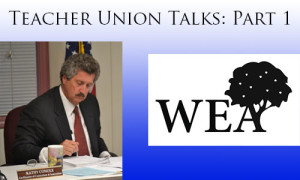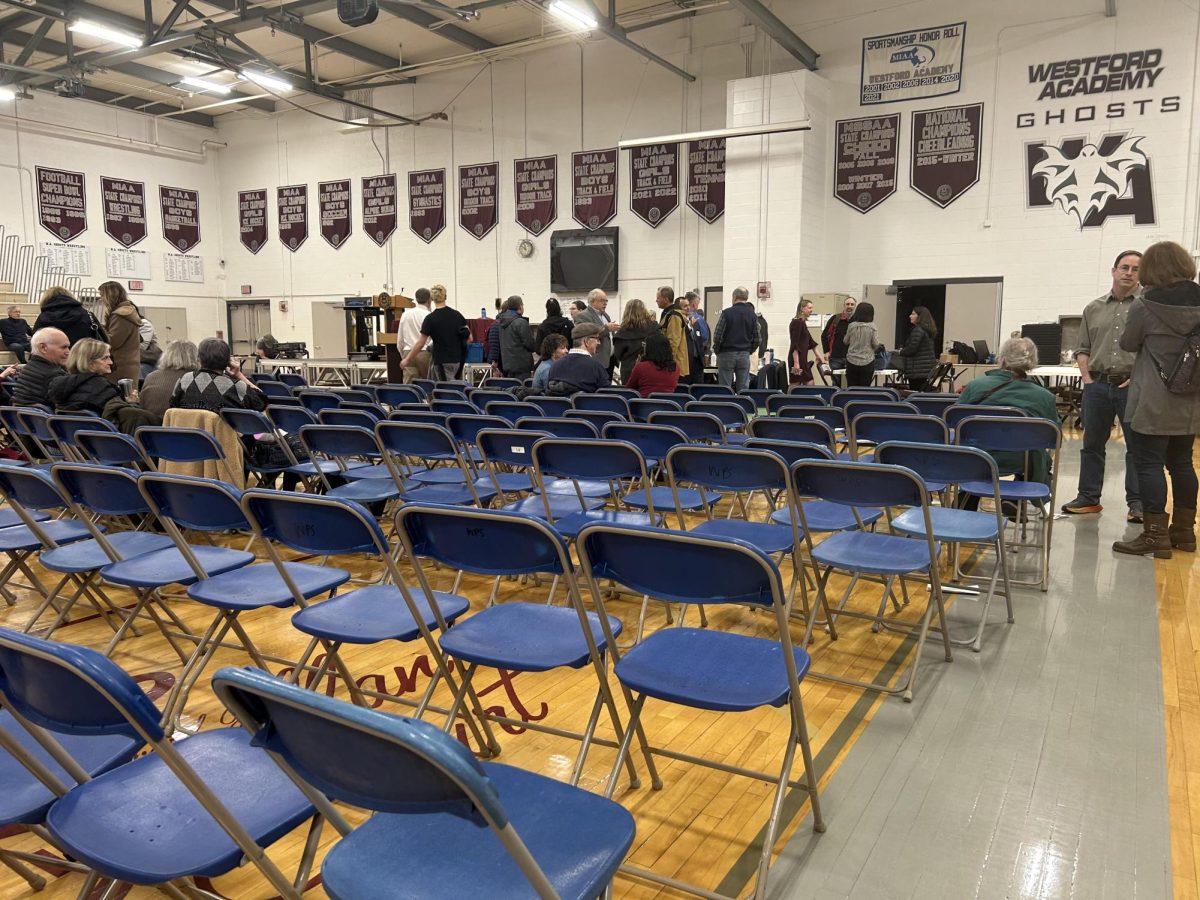 This is the 1st of a three part investigative report on the upcoming teacher union negotiations. Part 1 summarizes previous negotiation talks and the paradox found between Westford’s recent accomplishments in the face of below average school statistics such as the per pupil expenditure. Part 2 summarizes and analyzes the teacher union’s point of view and their most pressing concerns for the talks. Part 3 deals with the roles of the School Committee and Superintendent Bill Olsen in the talks.
This is the 1st of a three part investigative report on the upcoming teacher union negotiations. Part 1 summarizes previous negotiation talks and the paradox found between Westford’s recent accomplishments in the face of below average school statistics such as the per pupil expenditure. Part 2 summarizes and analyzes the teacher union’s point of view and their most pressing concerns for the talks. Part 3 deals with the roles of the School Committee and Superintendent Bill Olsen in the talks.
By Andy Dunn
Staff Writer
The recent litany of awards given to Westford and the school system this summer have proven to be bittersweet for the teacher union because of how these achievements have seemingly covered the inherent internal struggles the teacher union is facing, with their veil of success and prosperity.
Prepare for this cover to be broken off when negotiations begin between the teacher union and school committee to re-negotiate the contract set to expire in June 2014.
Money Magazine ranked Westford #11 for best small towns to live in and Boston Magazine ranked the school system #8 in Massachusetts. Earlier in 2013, Newsweek‘s best high schools in America rankings put Westford Academy #187 in the nation for all public and private high schools.
The methodology used for the Boston Magazine ranking included various statistics that paint a picture of the school system. Westford has a fantastic 98.5% graduation rate paired with 92.5% of students attending college, the highest college-bound rate for all Massachusetts high schools.
MCAS results show Westford students well above the state average, with approximately 87% proficient or higher compared to the state average of 50% according to the Boston Magazine report.
Even with all these impressive student performance statistics, which undoubtedly helped drive Westford’s high rankings, there are a few statistics that show the school system in a less than stellar light. When looking beyond the superficial veil these awards have cast over Westford, there is a reason to be concerned about the sustainability of the school system, according to Westford Education Association leader Jason Humphrey and Superintendent Bill Olsen.
The per pupil expenditure of $11,179 is the lowest out of Boston Magazine‘s top-12 schools and is closest to schools with middling rankings, such as Chelmsford (#57), Braintree (#55), and Halifax (#77). The student teacher ratio is also highest out of the top-10 schools with 14.9 students to 1 teacher.
All of these statistics and awards have created a talking point to discuss the upcoming contract negotiations between the School Committee and the teacher union.
Upperclassmen are fully aware of the potential ramifications these talks can have on the student body, including increased tension in the classroom and policies used that are disruptive to the learning environment, such as the work-to-rule policy used back in January 2012.
Back on June 15, 2012, the teacher union and School Committee reached an agreement after 18 months of contentious debate that began in November 2010. In September 2011, the teacher union demanded a mediator from the State Department of Labor after reporting an impasse in negotiations.
The talks reached a climax in conflict when the union staged a demonstration on the town common in December 2011 and instituted the infamous work-to-rule policy on January 24, 2012. The work-to-rule policy was used as a last-resort negotiation tactic according to Humphrey, and had teachers work “by the book.” This led to no extra help after school for students and unofficial clubs not meeting regularly.
Get ready to potentially go through it all over again.
The law requires a collective bargaining process to take place in order to determine working conditions.
Olsen says the process will implement collaborative bargaining rather than positional bargaining. Basically, collaborative bargaining is “issue-based bargaining” and begins with conversations between both sides on the most pressing issues.
The goal of collaborative bargaining is to find places of compromise and “to make it a better contract for students and teachers” according to Olsen. Some of the most important issues the talks will tackle, according to Humphrey and Olsen, include teacher salaries, the pay step scale, retaining staff, and health care.
With eleven staff members of the Westford school system leaving for other school systems in the last two years according to Olsen, the talks have utmost importance for anyone concerned with the future sustainability of the school system.
All students, parents, teachers, and administrators will be paying close attention to the talks, which may prove to be a defining moment for the future of the Westford school system.












